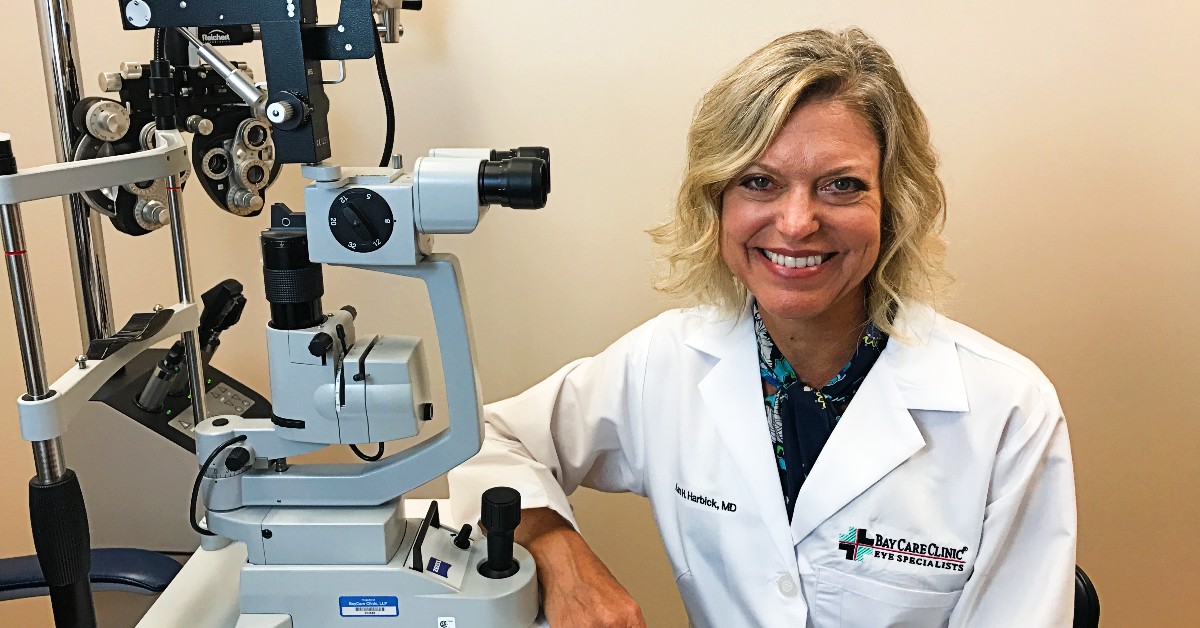
When it comes to undergoing an annual eye exam, it’s better late than never.
That’s sagely advice from Dr. Kara Harbick, an ophthalmologist and glaucoma specialist with BayCare Clinic Eye Specialists.
“It may have been a few years since your last eye exam. That’s OK and there’s no shame in admitting that,” says Harbick. “The important thing is to schedule an eye appointment soon so your eye specialist can help you stay on top of your eye health.”
Scheduling an eye exam at least every two years helps your eye specialist determine the overall health of your eyes and vision, Harbick says. These exams also are key to maintaining healthy, long-term vision.
“When seeing your eye specialist after not doing so for an extended period of time, you can expect to undergo several basic tests to provide your specialist with important information about your eyes and vision,” Harbick says. “You’ll likely also discuss your health history and any health changes since your last visit as well as undergo a refractive assessment to check your eyesight.”
Eye exams also screen for glaucoma, macular degeneration, diabetic retinopathy and other underlying health issues.
Here are more details on what to expect during an eye exam:
What can I expect during an eye exam?
You’ll meet first with an ophthalmic technician who will test your vision and eye pressure and prepare you for your visit with an ophthalmologist or optometrist.
Your eyes may be dilated with eye drops. It will take about 30 minutes for the eye drops to take effect. Dilating your eyes helps the specialist see into the back of your eye. You then will be examined by an ophthalmologist or optometrist.
Your eyes may be sensitive to bright light after they’re dilated. You may want to bring sunglasses with you. If you forget, no problem. We will provide a free pair of disposable eye shades before you leave the clinic.
How long will my eye exam take?
If you’re seeing an optometrist, at least 1 to 1½ hours. If you’re seeing an ophthalmologist, at least 1½ to 2 hours.
Can someone accompany me to my appointment?
Yes, a family member or friend is welcome. It may help to have another person listening and helping to recall details.
Can I eat before my eye exam?
Yes. If you’re a diabetic, you may wish to bring a snack. The examinations and meeting with your specialist may take 2 to 2½ hours.
Do I need a driver after my eye exam?
Not necessarily. If you’re concerned with seeing after having your eyes dilated, you may wish to arrange for a driver.
What should I bring to an appointment?
- Insurance cards
- Photo ID
- The glasses you’re wearing, if any
- A list of your current medications, including eye drops and any vitamins or over-the-counter medications
“Many eye diseases don’t have obvious early-stage symptoms,” Harbick says. “The most reliable way to protect your eye health is to undergo routine eye exams. They often serve as a key difference maker when it comes to early detection and treatment of eye disease.”